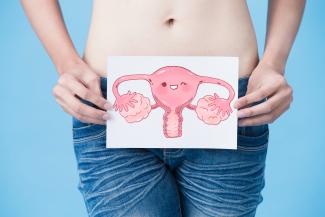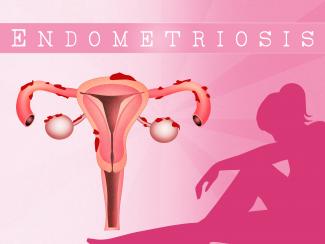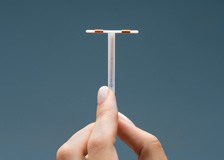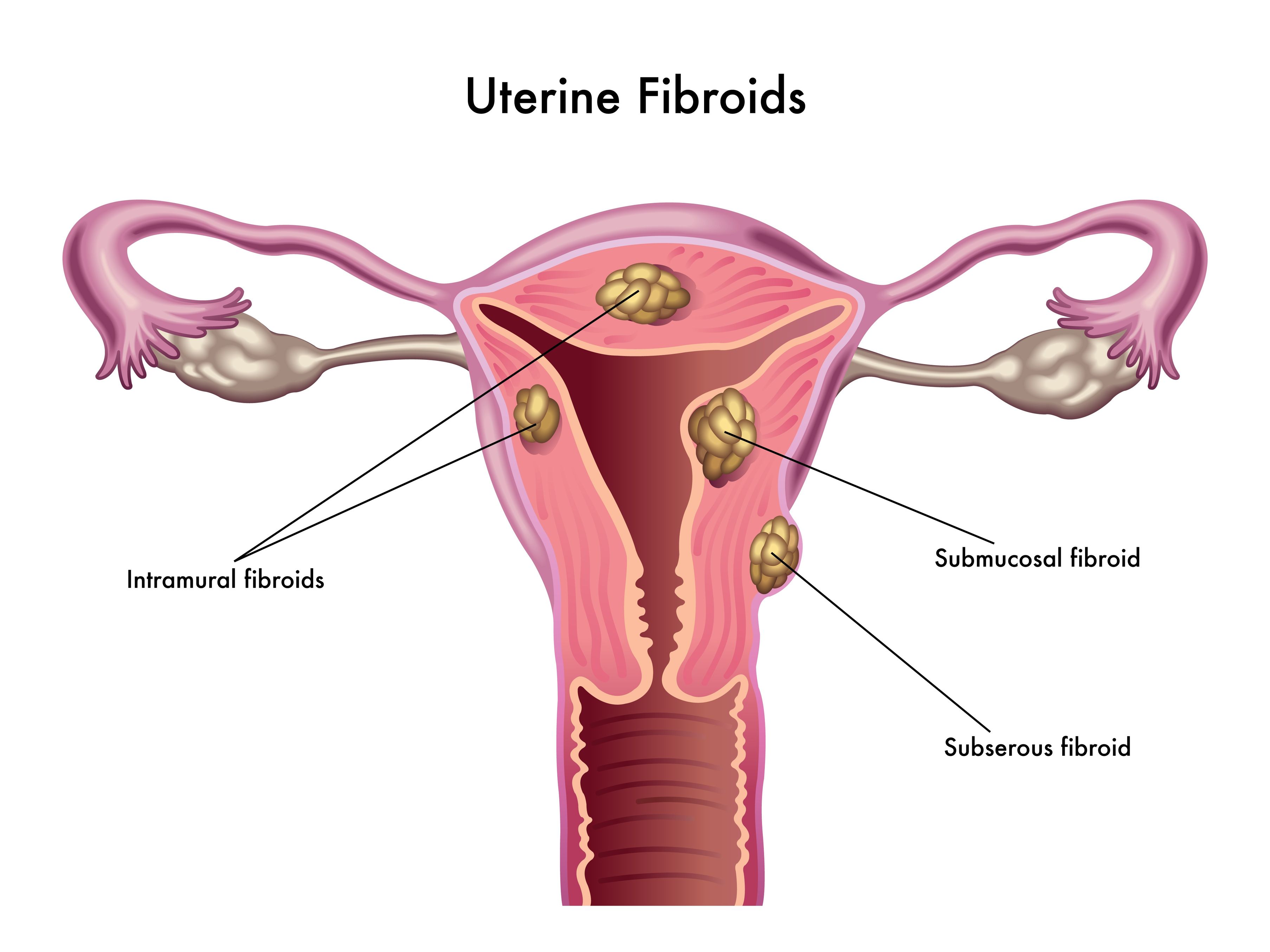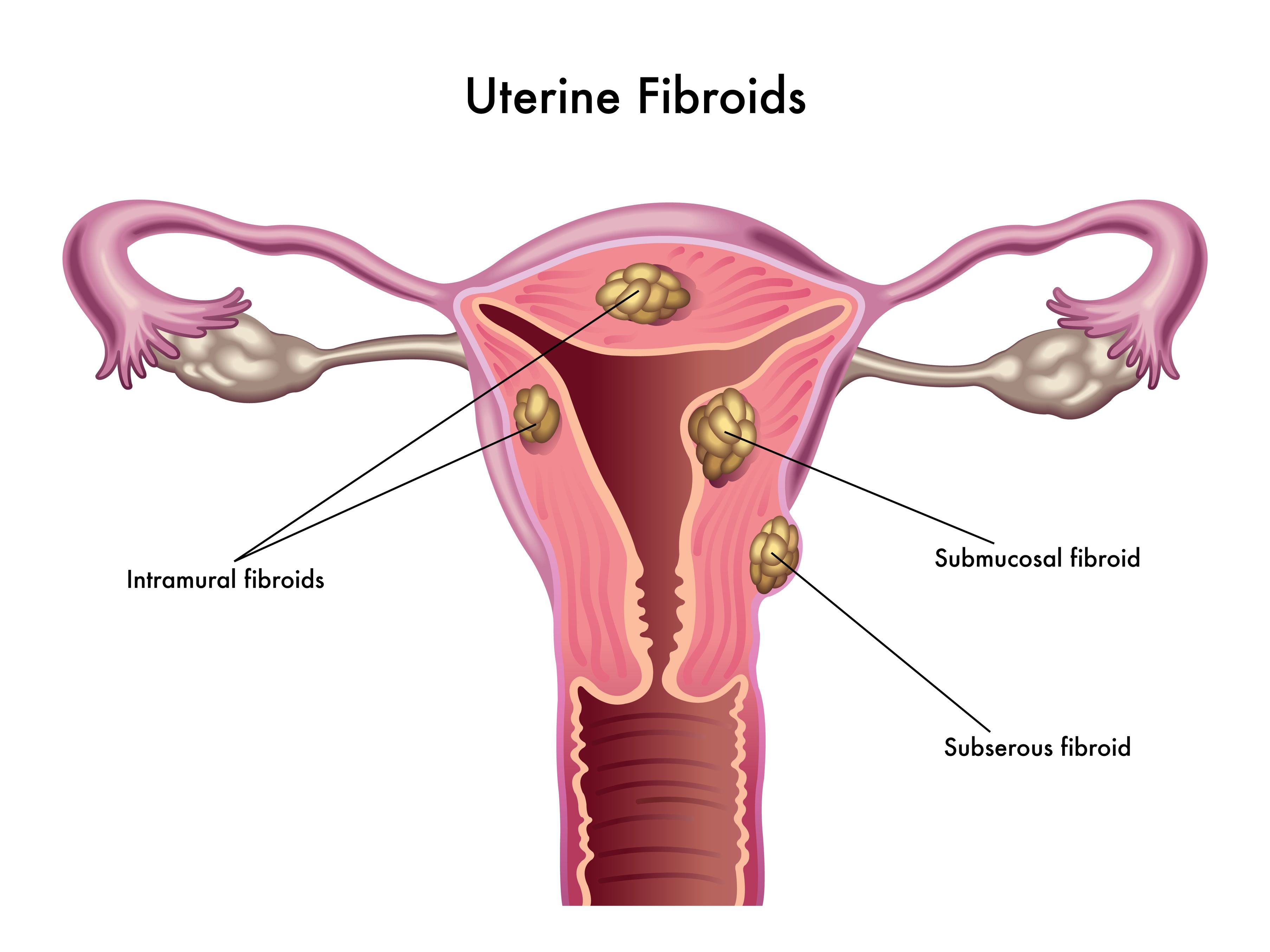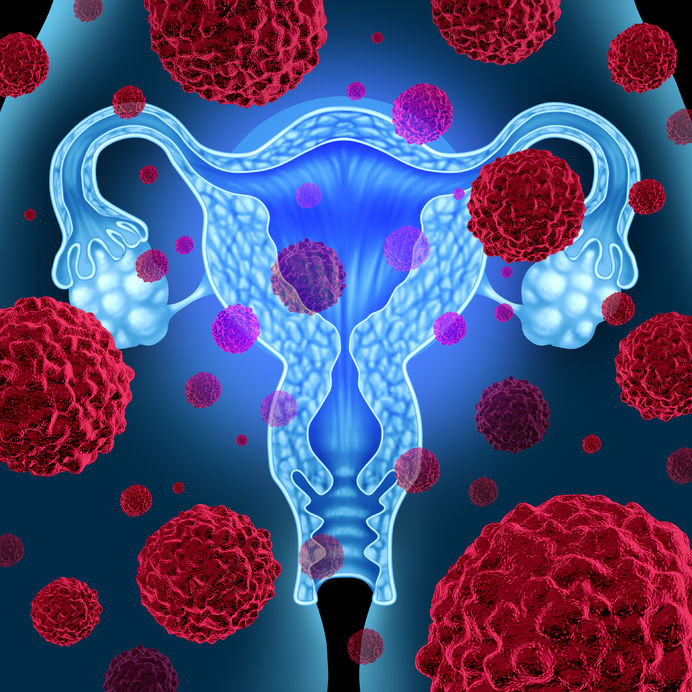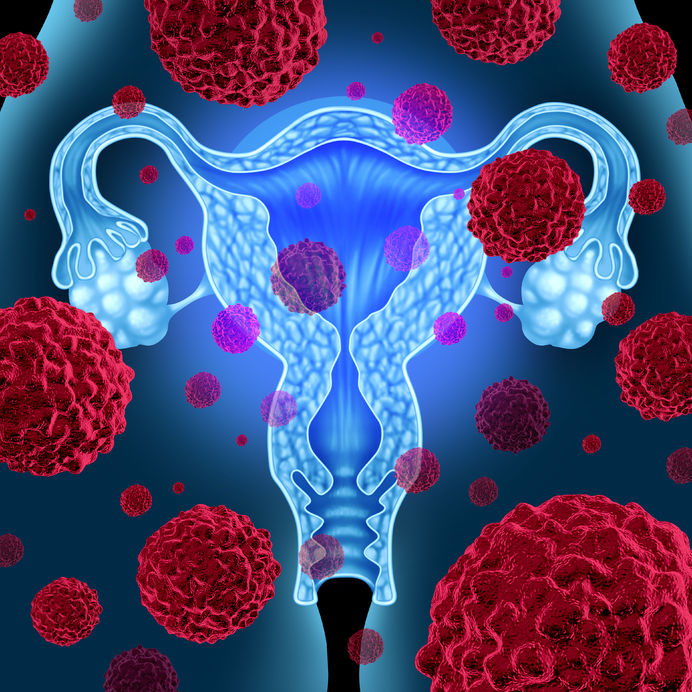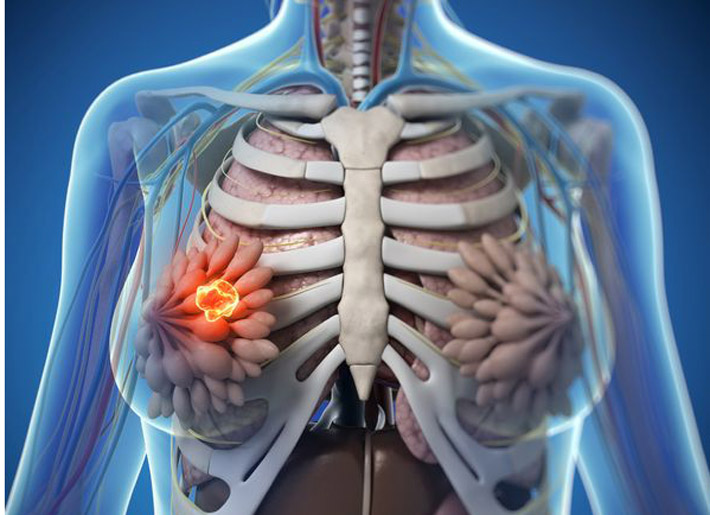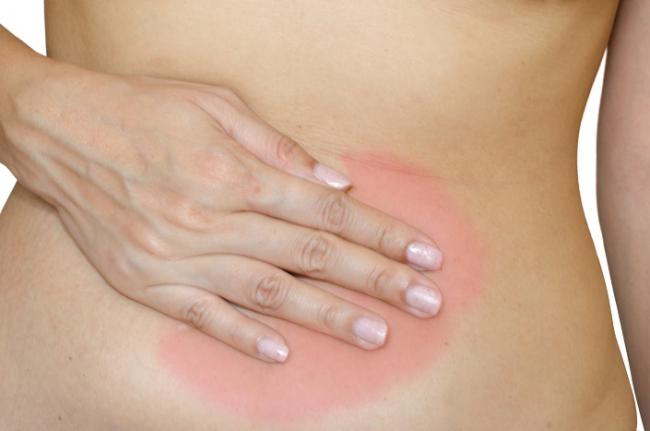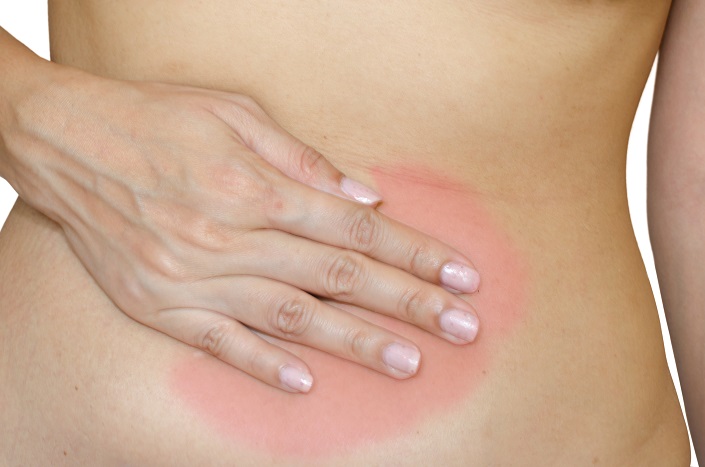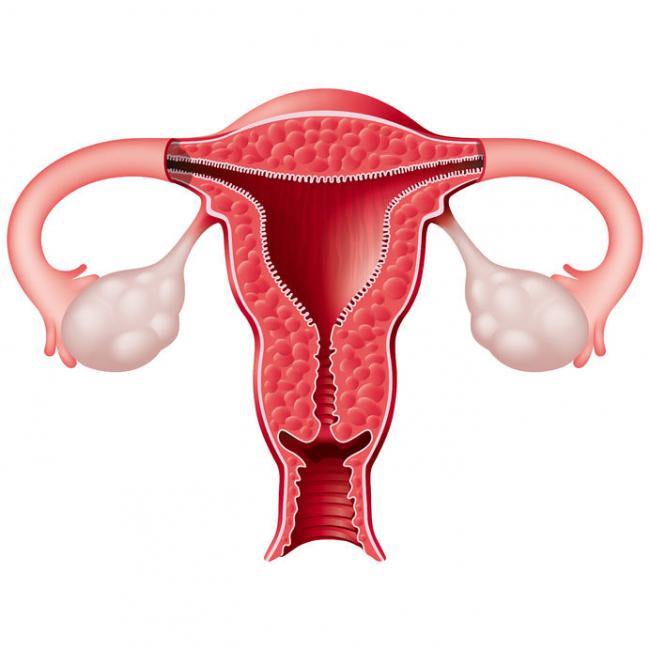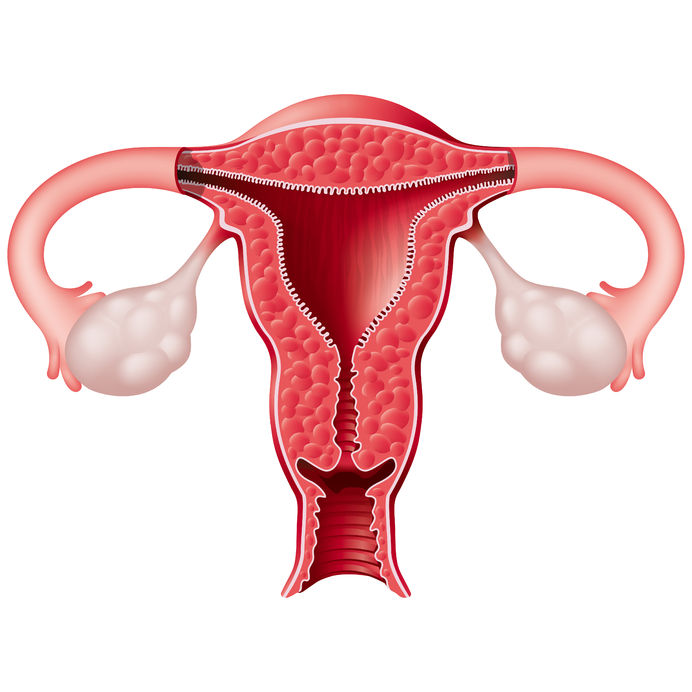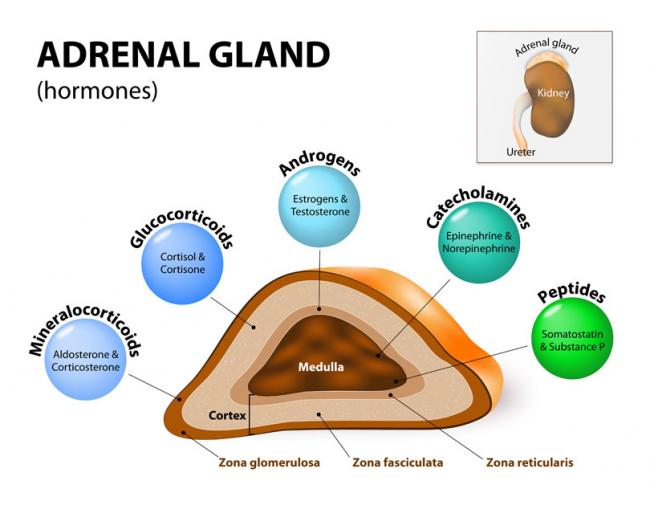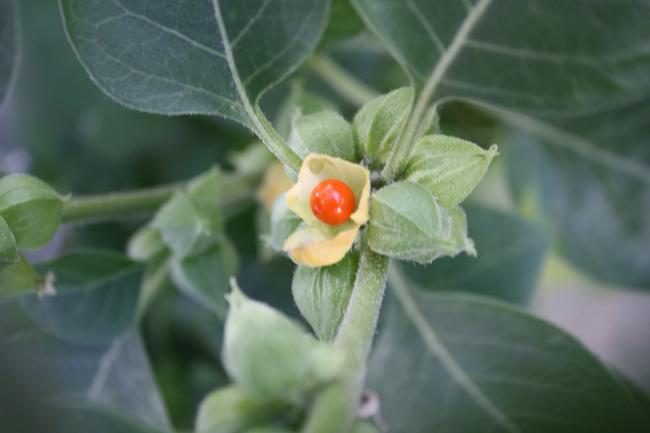Polycystic Ovarian Syndrome (PCOS) and Fertility Naturopathic Perspectives
ndmedic.com
Polycystic Ovarian Syndrome (PCOS) is one of the most common endocrine disorders. PCOS affects one in every five women of the reproductive age. PCOS symptoms include:
- Reproductive subfertility (difficulty conceiving)
- Hirsutism (excess facial and body hair),
- hyperandrogenism (excess male sex hormone),
- Metabolic Syndrome (insulin resistance, type 2 diabetes, heart disease)
- and psychological symptoms (increased anxiety, depression, and reduced quality of life) (1).
Among all these symptoms, difficulty conceiving is one of the most significant challenges that women with PCOS face. PCOS is the primary cause of more than 75% of infertility cases (2).
PCOS is characterized by:
- Chronic oligomenorrhea (missed periods)
- Anovulation (lack of ovulation)
- and hyperandrogenism (excess male sex hormones).
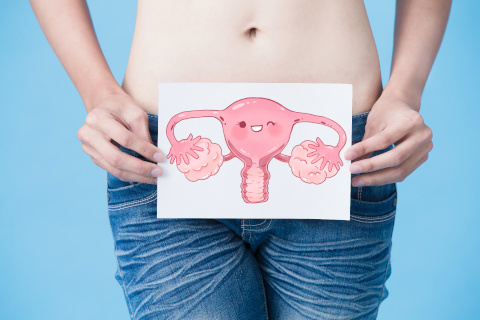
There has been significant progress in the diagnosis of PCOS. The optimal fertility treatment for a woman with PCOS, however, is still unknown (4,5).
Conventional Treatments for Fertility in PCOS:
Clomiphene citrate is usually the first fertility drug of choice. It blocks estrogen hormone. It also increases the production of female hormones, FSH, and LH hormones. Additionally, it enhances the growth of follicles (6). Ovulation induction is commonly used in conventional medicine to assist a woman with PCOS in becoming pregnant. The goal of the treatment is to develop a single ovulatory follicle and prevent the incidence of multiple pregnancies.
In vitro maturation of oocytes (IVM) is a procedure by which an early tertiary follicle is matured in the lab. Subsequently, the follicle is fertilized. This technique produces live births (7). IVF (in vitro fertilization) is another technique. This technique, however, is usually the last resort due to its associated risk. Ovarian hyper-stimulation, the associated risk of IVF, for instance, can lead to severe illness or death. It is essential to keep in mind that women with PCOS are already at an increased risk of miscarriage. They also carry a higher risk of developing pregnancy-induced high blood pressure (8).
Natural Treatments for PCOS:
Natural fertility methods for a woman with PCOS include
- PCOS die,
- Exercise
- Weight loss
- Acupuncture
- Yoga,
- Supplements (i.e., vitamin D),
- and herbal medicine.
Studies show that lifestyle interventions can improve insulin sensitivity and restore ovulation in women with PCOS (9).
Exercise for PCOS:
An active lifestyle that includes daily exercise is essential for fertility.
Exercises like
- Pilates,

- Swimming,
- Yoga,
- Long walks,
- and light jogs that are low in intensity
are proven helpful for PCOS. High-intensity workouts more than two times a week can do more harm for patients with PCOS.
Dietary Recommendation for Food List:
Having a diet high in fibers, including fruits and vegetables, is essential for enhancing the chances of fertility.
- Avoiding caffeine, sugar, and white flour,
- Limiting red meat consumption,
- Adding antioxidants like green tea (EGCG),
- Selenium and melatonin
help with fertility as well.
Unlike simple carbohydrates, complex carbohydrates contain fiber and do not raise blood sugar levels as much. Some common sources of complex carbs include:
- whole grains
- whole-wheat bread and pasta
- brown rice
Acupuncture for PCOS:
Aside from considering your nutritional needs, we might use other modalities like acupuncture to help increase the odds of getting pregnant. Even if you are currently trying other methods such as IVF, we can still use acupuncture to improve your chances of becoming pregnant.
Acupuncture can improve the success rate of IVF in many ways by improving the function of the ovaries, regulating the hormone levels, increasing the blood flow to the uterus, and increasing the thickness of the uterine wall. It also decreases stress and keeps the patient more relaxed, further preventing the uterus from contracting. It can also reduce the chances of miscarriages. (10)
Acupuncture also helps with fertility. In one study, 51% of women who underwent IVF and acupuncture treatment at the same time became pregnant. This rate dropped to 36% in those who only experienced IVF treatment. The latter group also showed a higher proportion of miscarriage and stillbirth (20%) (11).
Herbs and Natural Supplements for PCOS and Fertility:
-
- Myo-inositol:
Results from studies have shown that myo-inositol supplement is a simple and safe supplement to be taken before and during pregnancy. Myo-inositol supplementation in PCOS women decreases male hormone (androgen levels) and restores ovulation. It also lowers blood pressure and triglyceride levels. (12-13) It further restores spontaneous ovulation, menstrual cycles, and fertility in many PCOS patients.
Myo-inositol plays a vital role in follicular maturity and provides good-quality oocytes. It also increases the number of oocytes collected after ovarian stimulation when undergoing IVF (in vitro fertilization) (14). As with many naturopathic interventions, which are holistic, I will be taking your diet into account when recommending supplements. I will take your myo-inositol nutrient intake from the food into account when recommending supplementation with Myo-inositol. I will also be recommending additional supplements and dietary changes to help you conceive and regulate your cycles as soon as possible.
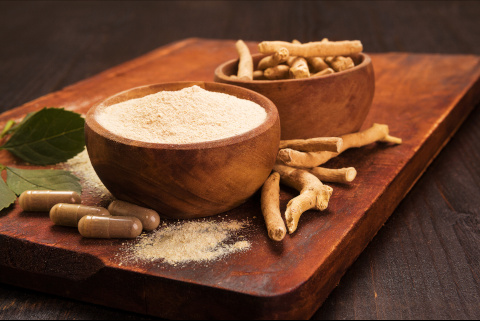
-
- Ashwagandha (also known as Withania Somnifera):
Ashwagandha is a herbal formula that acts as an adaptogen. Adaptogens enhance brain function, reduce depression and anxiety. Aside from all these, it’s an excellent antioxidant with anti-cancer properties.
-
- Magnesium and zinc:
Women with PCOS tend to be deficient in magnesium and zinc. Magnesium also acts as a muscle relaxant and balances the nervous system. Zinc also enhances immunity, minimizes hair loss, regulates the menstrual cycle, and optimizes the nervous system.
- Vitamin D
Vitamin D also increases the chance of fertility. Not only for fertility, but low blood levels of vitamin D during pregnancy are associated with an increased risk of giving birth to infants with low birth weight. If you get pregnant with twins, then you need to be watchful of your vitamin D levels even more. Twin newborns and their mothers have higher levels of vitamin D deficiency as compared to singleton newborns and their mothers. (15,16)
-
- Fennel Tea:
Try drinking fennel tea to balance hormones and regulate cycles.
-
- Omega 3s:
Fish oil can decrease androgen levels in women with PCOS. Women with PCOS who were given 3 grams of omega-3s a day for eight weeks had lower testosterone levels and were more likely to resume regular menses than subjects who received a placebo (17).
-
- Vitex:
Vitex, also known as Chaste Tree Berry, reduces inflammation in your body. It also helps regulate your cycles. If you have PCOS with normal LH levels and high prolactin levels, you might benefit from using Vitex. Vitex, however, can actually worsen PCOS for some if their LH levels are already high. Vitex increases progesterone levels by increasing LH (luteinizing hormone) levels, and it suppresses prolactin levels – to increase ovulatory cycles. If your LH levels are already high, to begin with, then vitex would not be a good idea.
-
- B12:
Depending on your blood B12 levels, B12 might be needed. B12 helps with energy. It reduces fatigue and optimizes your cognitive function.
Summary:
Infertility in PCOS can result from irregular ovulation and menstruation. With a sporadic cycle, it can be difficult to identify the fertile window; when a person can conceive. The natural methods mentioned above may help regulate menstruation. It is important to keep in mind that diet (weight loss) and exercise are two of the most important components of this protocol. It is important to speak with a doctor about the best individualized plan for you.
References
- Teede1, H., Deeks, 1., Moran, L. (2010). Polycystic ovary syndrome: a complex condition with psychological, reproductive, and metabolic manifestations that impacts health across the lifespan. BMC Medicine. 8:41
- Gorry, A., White, D. M.; Franks, S. (2006). “Infertility in polycystic ovary syndrome: focus on low-dose gonadotropin treatment.” Endocrine. 30 (1): 27–33.
- Unfer V, Carlomagno G, Dante G, Facchinetti F. Effects of myo-inositol in women with PCOS: a systematic review of randomized controlled trials. Gynecol Endocrinol 2012; 28(7): 509-15. PMID: 22296306
- Consensus on infertility treatment related to polycystic ovary syndrome. The Thessaloniki ESHRE/ASRM-Sponsored PCOS Consensus Workshop Group* March 2–3, 2007, Thessaloniki, Greece. Hum Reprod 2007; 23:462–477.
- Palomba S, Orio F, Zullo F. Ovulation induction in women with polycystic ovary syndrome. Fertil Steril 2008; 86(Suppl 1): 26–7.
- Buvat J, Buvat-Herbaut M, Marcolin G. Horm Res, 1987, 28, 219–229.
- Hardy K, Wright CS, Franks S, Winston RM. In vitro maturation of oocytes. Br Med Bull.2000; 56 (3):588-602.
- Hart R. PCOS and infertility. Panminerva Medica. 2008, 50(4): 305-314.
- Thomson RL, Buckley JD, Brinkworth GD. Exercise for the treatment and management of overweight women with polycystic ovary syndrome: a review of the literature. Obes Rev.2011; 12: e202–e210.
- https://mcmasteracupuncture.com/articles/case-report-successful-in-vitro-fertilization-following-acupuncture-treatment/
- Goldin BR, Estrogen excretion patterns, and plasma levels in vegetarian and omnivorous women. N Engl J Med, 1982, 307, 1542-47.
- Gerli S, Mignosa M, Di Renzo GC. Effects of inositol on ovarian function and metabolic factors in women with PCOS: a randomized, double-blind placebo-controlled trial. Eur Rev Med Pharmacol Sci. 2003;7(6):151–159.
- Ciotta L, Stracquadanio M, Pagano I, Carbonaro A, Palumbo M, Gulino F. Effects of myo-inositol supplementation on oocyte’s quality in PCOS patients: a double-blind trial. Eur Rev Med Pharmacol Sci. 2011;15(5):509-514.
- Ciotta L, Stracquadanio M, Pagano I, Carbonaro A, Palumbo M, Gulino F. Effects of myo-inositol supplementation on oocyte’s quality in PCOS patients: a double-blind trial. Eur Rev Med Pharmacol Sci. 201; 15 (5): 509-14.
- https://www.ncbi.nlm.nih.gov/pubmed/27358199
- https://www.ncbi.nlm.nih.gov/pubmed/24522025
- http://www.ncbi.nlm.nih.gov/pmc/articles/PMC3941370/


